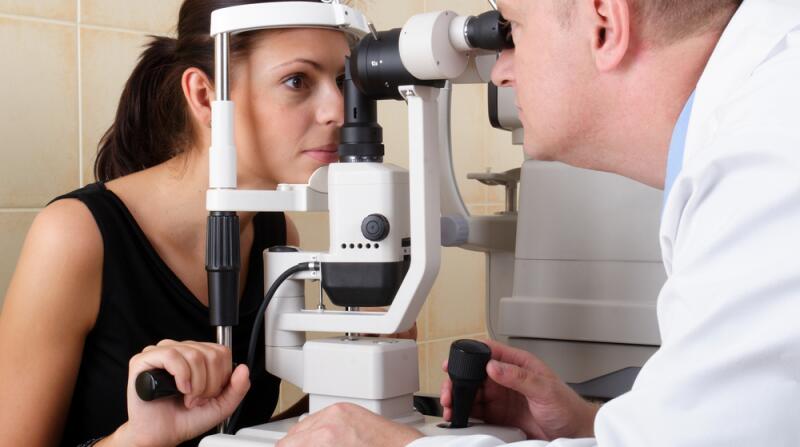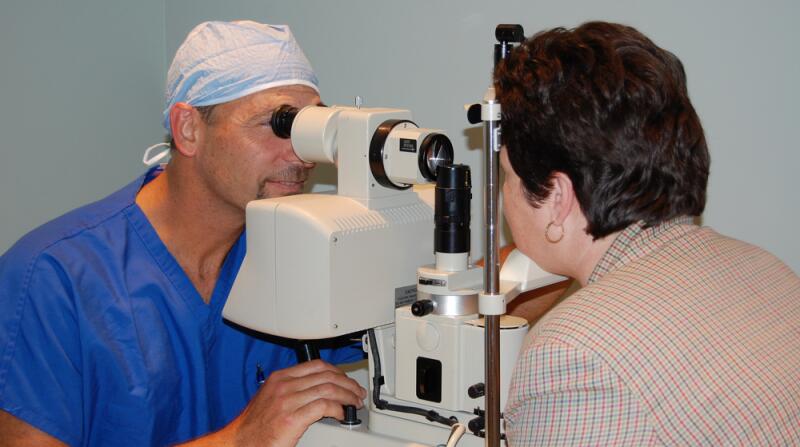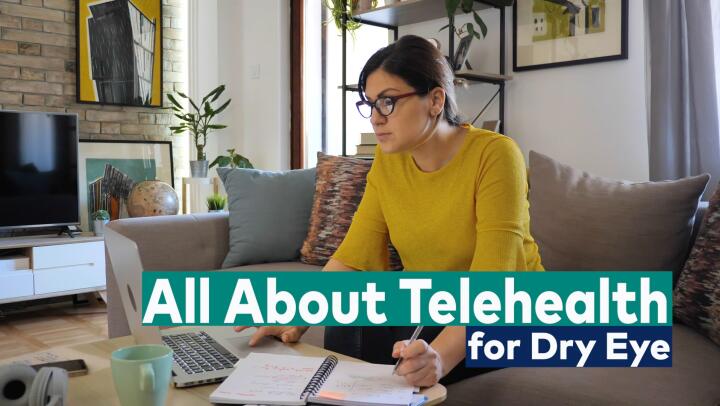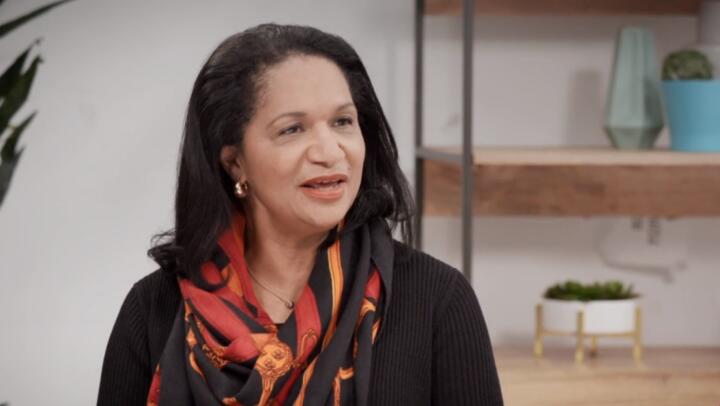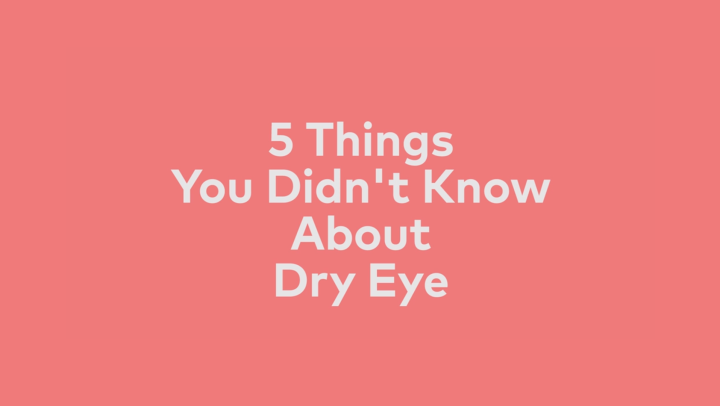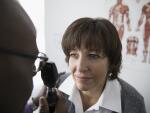8 Tips for Choosing an Ophthalmologist
Medically Reviewed By William C. Lloyd III, MD, FACS
Written By Sarah Lewis, PharmD on May 11, 2020
-
 A Personal DecisionSeeing an ophthalmologist for early treatment or preventive eye care is the best way to reduce the risk of permanent eye damage and vision loss. Your ophthalmologist will guide you through many decisions about protecting your vision or treating an eye condition. How do you find the best ophthalmologist who is right for you? Here are some important factors to keep in mind.
A Personal DecisionSeeing an ophthalmologist for early treatment or preventive eye care is the best way to reduce the risk of permanent eye damage and vision loss. Your ophthalmologist will guide you through many decisions about protecting your vision or treating an eye condition. How do you find the best ophthalmologist who is right for you? Here are some important factors to keep in mind. -
 1. Get ReferralsStart with a referral list from your optometrist or primary care doctor. You can also ask family, friends and other healthcare providers for recommendations. Take the time to research the doctors’ credentials and experience on Healthgrades.com. Keep in mind there are many different ophthalmology subspecialties including those who specialize in treating glaucoma, or diseases of the cornea or retina. As you narrow down your list, call each ophthalmologist’s office and ask for a consult appointment to meet and interview the doctor.
1. Get ReferralsStart with a referral list from your optometrist or primary care doctor. You can also ask family, friends and other healthcare providers for recommendations. Take the time to research the doctors’ credentials and experience on Healthgrades.com. Keep in mind there are many different ophthalmology subspecialties including those who specialize in treating glaucoma, or diseases of the cornea or retina. As you narrow down your list, call each ophthalmologist’s office and ask for a consult appointment to meet and interview the doctor.
-
-
 2. Research the Ophthalmologist’s CredentialsBoard certification is one of the most important factors to consider when you are choosing an ophthalmologist. It tells you that the doctor has the necessary training, skills and experience to provide the best ophthalmic care. Subspecialty fellowship training is especially valuable. Also confirm that the ophthalmologist has no history of malpractice claims or disciplinary actions. You can find the ophthalmologist’s medical school, training hospital, certifications, and malpractice and disciplinary history on Healthgrades.com and state websites.
2. Research the Ophthalmologist’s CredentialsBoard certification is one of the most important factors to consider when you are choosing an ophthalmologist. It tells you that the doctor has the necessary training, skills and experience to provide the best ophthalmic care. Subspecialty fellowship training is especially valuable. Also confirm that the ophthalmologist has no history of malpractice claims or disciplinary actions. You can find the ophthalmologist’s medical school, training hospital, certifications, and malpractice and disciplinary history on Healthgrades.com and state websites.
-
 3. Consider the Ophthalmologist’s ExperienceExperience matters when you’re facing eye problems or conditions that could affect your vision. The more experience an ophthalmologist has with a condition or procedure, the better your results are likely to be. Ask how many patients with your specific condition the ophthalmologist has treated. If you need a specific procedure, ask how many of the procedures the doctor has performed and find out about complication rates—complications the doctor has encountered as well as your own risk of complications.
3. Consider the Ophthalmologist’s ExperienceExperience matters when you’re facing eye problems or conditions that could affect your vision. The more experience an ophthalmologist has with a condition or procedure, the better your results are likely to be. Ask how many patients with your specific condition the ophthalmologist has treated. If you need a specific procedure, ask how many of the procedures the doctor has performed and find out about complication rates—complications the doctor has encountered as well as your own risk of complications.
-
 4. Consider GenderIt’s important to feel comfortable with your ophthalmologist’s gender because you will need to openly discuss personal information. When it comes to eye diseases and conditions, your own gender is also an important consideration. Ophthalmologists are becoming more skilled in caring for women and men differently. Ask the ophthalmologist about his or her recent training and experience specifically related to your condition and your gender.
4. Consider GenderIt’s important to feel comfortable with your ophthalmologist’s gender because you will need to openly discuss personal information. When it comes to eye diseases and conditions, your own gender is also an important consideration. Ophthalmologists are becoming more skilled in caring for women and men differently. Ask the ophthalmologist about his or her recent training and experience specifically related to your condition and your gender.
-
 5. Ask About Telehealth CapabilitiesHealthcare providers can diagnose and treat some patients using telecommunications technology, including two-way video, smartphones, and email; it's called telehealth. Ask if the doctor offers telehealth capabilities. Telehealth doesn’t replace hands-on in-person office visits, but for many patients, it means fewer trips to the doctor’s office. Some conditions can be managed by sending symptoms and vital signs you collect at home and having a “virtual visit” with your provider. Telehealth can also be used for routine follow-ups and minor complaints too, making it a convenient option. Check to make sure your health insurance will pay for telehealth services.
5. Ask About Telehealth CapabilitiesHealthcare providers can diagnose and treat some patients using telecommunications technology, including two-way video, smartphones, and email; it's called telehealth. Ask if the doctor offers telehealth capabilities. Telehealth doesn’t replace hands-on in-person office visits, but for many patients, it means fewer trips to the doctor’s office. Some conditions can be managed by sending symptoms and vital signs you collect at home and having a “virtual visit” with your provider. Telehealth can also be used for routine follow-ups and minor complaints too, making it a convenient option. Check to make sure your health insurance will pay for telehealth services. -
-
 6. Evaluate Communication StyleChoose an ophthalmologist with whom you are comfortable talking and who supports your information needs. When you first meet the ophthalmologist, ask a question and notice how he or she responds. Does he or she welcome your questions and answer them in ways that you can understand? During the first visit did you feel rushed or engaged? Find an ophthalmologist who shows an interest in getting to know you, who will consider your treatment preferences, and who will respect your decision-making process.
6. Evaluate Communication StyleChoose an ophthalmologist with whom you are comfortable talking and who supports your information needs. When you first meet the ophthalmologist, ask a question and notice how he or she responds. Does he or she welcome your questions and answer them in ways that you can understand? During the first visit did you feel rushed or engaged? Find an ophthalmologist who shows an interest in getting to know you, who will consider your treatment preferences, and who will respect your decision-making process.
-
 7. Read Patient ReviewsReading what other people have to say about a doctor can provide insight into how a doctor practices medicine, as well as how his or her medical practice is operated. Patient reviews typically reflect people's experience with scheduling appointments, wait times, office environment, and office staff friendliness. You can learn how well patients trust the doctor, how much time he or she spends with their patients, and how well he or she answers questions.
7. Read Patient ReviewsReading what other people have to say about a doctor can provide insight into how a doctor practices medicine, as well as how his or her medical practice is operated. Patient reviews typically reflect people's experience with scheduling appointments, wait times, office environment, and office staff friendliness. You can learn how well patients trust the doctor, how much time he or she spends with their patients, and how well he or she answers questions.
-
 8. Know What Your Insurance CoversYour insurance coverage is a practical matter. To receive the most insurance benefits and pay the least out-of-pocket for your care, you may need to choose an ophthalmologist who participates in your plan. You should still consider credentials, experience, outcomes, and hospital quality as you select an ophthalmologist from your plan.
8. Know What Your Insurance CoversYour insurance coverage is a practical matter. To receive the most insurance benefits and pay the least out-of-pocket for your care, you may need to choose an ophthalmologist who participates in your plan. You should still consider credentials, experience, outcomes, and hospital quality as you select an ophthalmologist from your plan.
8 Tips for Choosing an Ophthalmologist
